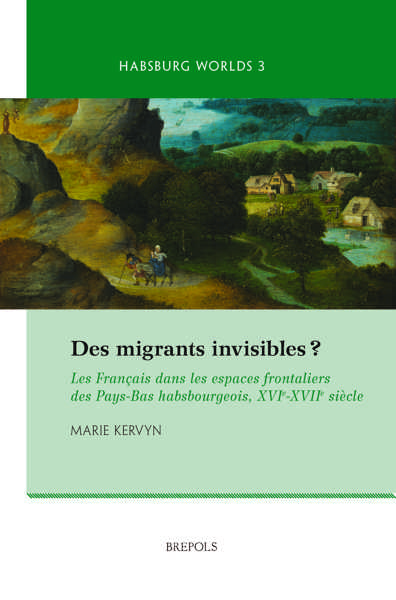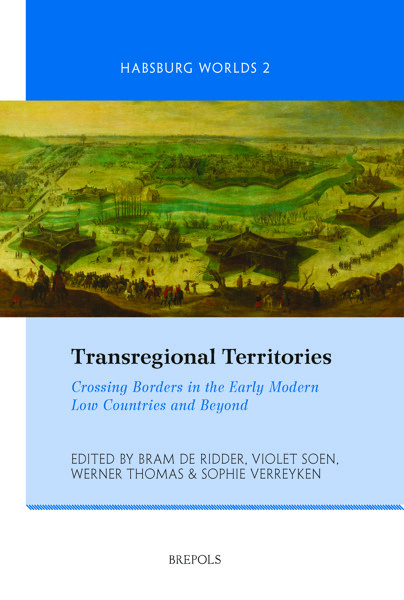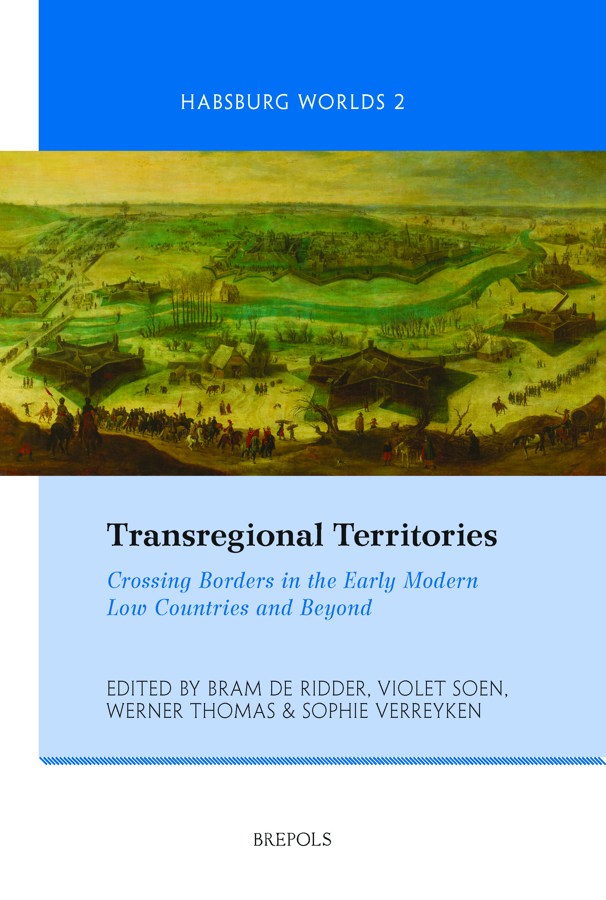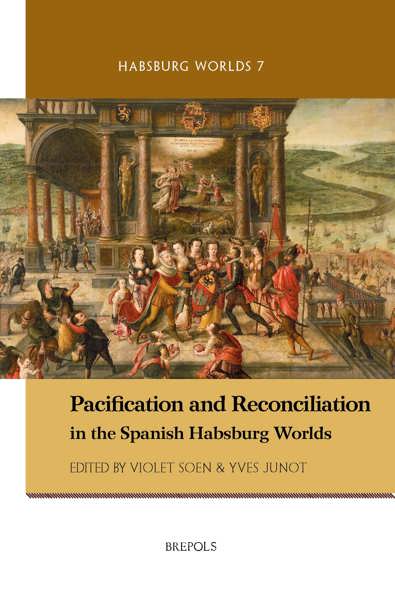
Transregional Territories
Crossing Borders in the Early Modern Low Countries and Beyond
Bram De Ridder, Violet Soen, Werner Thomas, Sophie Verreyken (eds)
- Pages: 262 p.
- Size:156 x 234 mm
- Illustrations:7 b/w
- Language(s):English
- Publication Year:2020
- € 65,00 EXCL. VAT RETAIL PRICE
- ISBN: 978-2-503-58493-5
- Paperback
- Available
- € 65,00 EXCL. VAT RETAIL PRICE
- ISBN: 978-2-503-58494-2
- E-book
- Available
“Was sich wie eine Binsenwahrheit ausnimmt, illustriert dieser Band auf eine so nachdrückliche wie inspirierende Weise.” (Michael Kaiser, in Rheinische Vierteljahrsblätter, 2021, p. 306)
Bram De Ridder, Violet Soen, Werner Thomas, and Sophie Verreyken are all members of the History Research Unit of the University of Leuven. They have worked extensively on the history of the early modern Habsburg polycentric Monarchy and its interactions with the old and new worlds. They joined their research efforts in the transregionalhistory.eu platform.
The early modern world was one of movement, contact, and exchange. Yet, this does not mean that it was borderless. On the contrary, connection existed only when people moved along and across the separations between polities, religions, and mentalities. So in order to understand early modern connections, one also needs to analyse the boundaries that accompanied them.
In Transregional Territories, the early modern Low Countries are chosen as a ‘laboratory’ for studying border formation and border management through the lens of transregional history. Eight different cases highlight the impact of boundaries on the actions and strategies of individuals and governments. Crossing borders in early modern times was not merely an act of negating a territorial division, but rather a moment of intimate interaction with the separation itself. As such, this volume illustrates how borders forced historical actors to adapt their behaviour, and how historians can use a transregional vantage point to better understand these changes.
The cases are presented by leading border specialists and scholars of the early modern Low Countries: Fernando Chavarría Múgica, Victor Enthoven, Raingard Esser, Yves Junot, Marie Kervyn, Christel Annemieke Romein, and Patricia Subirade.
Bram De Ridder, Violet Soen, Werner Thomas, and Sophie Verreyken are all members of the Early Modern History Research Group of the KU Leuven. Together, they have published extensively on transregional history and the history of the early modern Low Countries, grouped under the label of transregionalhistory.eu.
Introduction:
Transregional History: New Perspectives on Early Modern Borders and Borderlands in the Low Countries and the Habsburg Worlds. Bram De Ridder & Violet Soen.
Part I: Transregional Families
Upper Guelders’s Four Points of the Compass: Historiography and Transregional Families in a Contested Border Region between the Empire, the Spanish Monarchy, and the Dutch Republic. Raingard Esser.
Transregional Marriages and Strategies of Loyalty: The House of Arenberg Navigating between the Spanish and Austrian Habsburgs, 1630–1700. Sophie Verreyken.
Part II: Cross-Border Circulations
Negotiating Consensual Loyalty to the Habsburg Dynasty: Francophone Border Provinces between the Low Countries and France, 1477–1659. Yves Junot & Marie Kervyn,
Franche-Comté, the Low Countries, and the Catholic Backbone of Seventeenth-Century Europe: Transregional and Cross-Border Circulations of Devotional Practices and Artistic Knowledge. Patricia Subirade.
How Local Politics Became a Matter of Transregional Concern: German and Dutch Pamphlets Calling Jülich Nobility to Assemble in Cologne, 1642–1651. Annemieke Romein.
Part III: Border Management
The Scheldt Estuary during the Dutch Revolt: War, Trade, and Taxation, 1572–1609. Victor Enthoven.
Border Management during the Eighty Years’ War: Passports for Persons Crossing the New Habsburg-Dutch Border, 1568–1648. Bram De Ridder.
Cannon Law’ during the Politique des Réunions: French Power Politics at the Bidasoa Border and the Crisis of the Customary Law of Nations. Fernando Chavarría Múgica.




